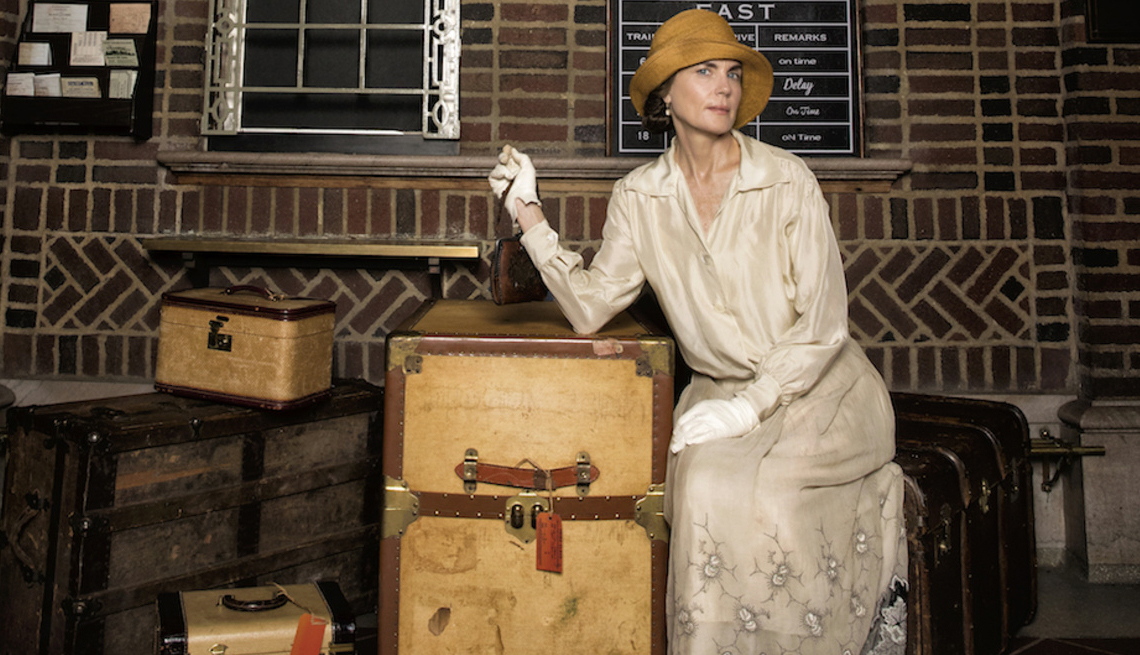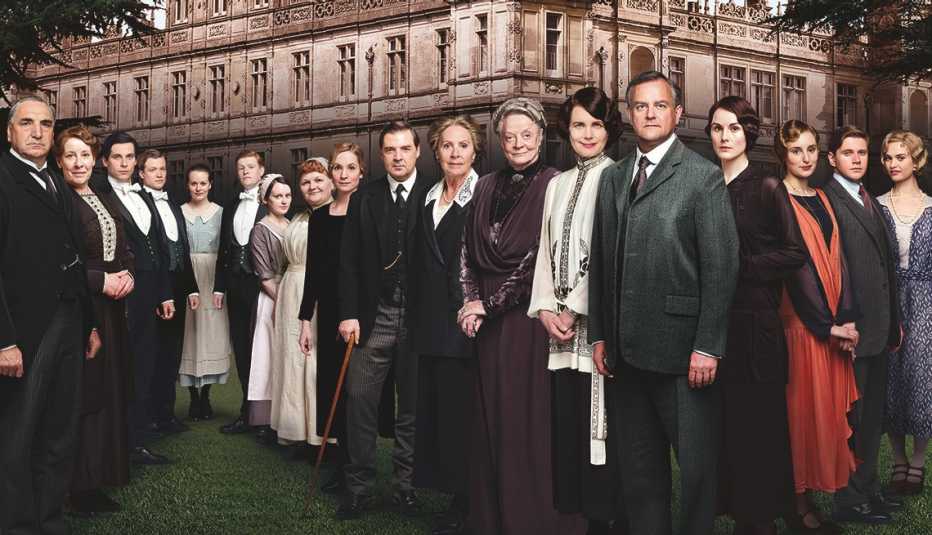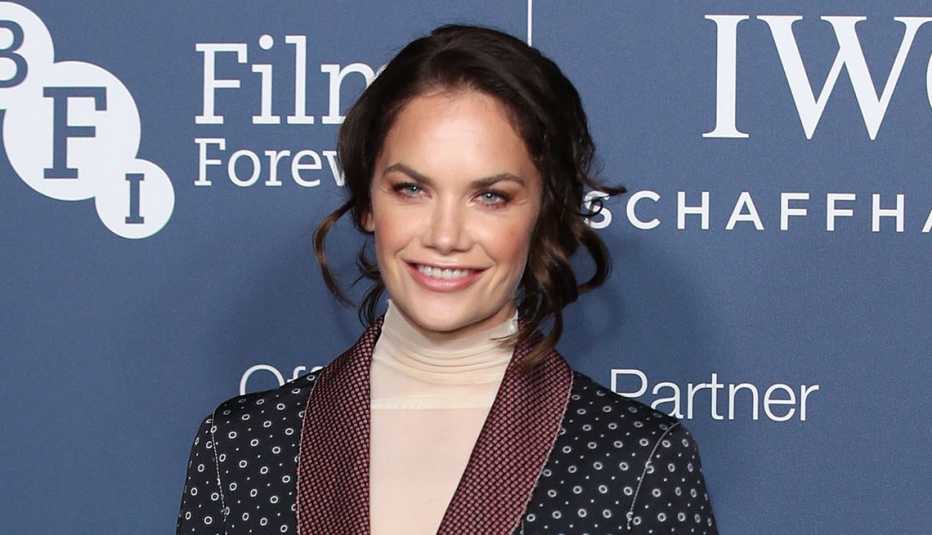AARP Hearing Center
Sparkle, beauty and intelligence define Elizabeth McGovern, 57. An Oscar nominee at 20 for Ragtime, she grew up before our eyes, from the ingenue in 1981's Ordinary People to Downton Abbey’s American heiress Cora Crawley, the role that turbocharged her fame at 49. Now she has produced Laura Moriarty’s The Chaperone, recruiting Downton writer Julian Fellowes and upcoming Downton movie director Michael Engler. Illinois-born McGovern stars as Norma, the sensible Midwestern matron who accompanies 15-year-old Louise Brooks (Haley Lu Richardson), future movie star, on her first trip to Manhattan in 1922. Norma unexpectedly breaks free of her repressed life as wife and mother to find love and agency in midlife.
What drew you to the part of Norma?
There’s a dearth of stories about women in middle age. Where are we? As an actress I’m always seeking a story about a woman who’s still learning about herself. That she can be the arbiter of her own sexual and personal happiness is very liberating. I want to see movies where women don’t just crawl into a hole and stagnate. We’re still growing, learning, changing — and it’s still possible to find love. It’s not always about perfect skin.
What’s the intergenerational dynamic between Norma and Louise Brooks?
Part of what I love about The Chaperone is that it paints a picture of an older woman who learns a lot from a much younger woman. Same with my children. They raised themselves, and I looked on in awe. I tried to feed them and stuff. They worked it out for themselves. Louise has a lot to give Norma, and Norma, in turn, finds a lot to give back. They were never great friends. They don’t walk into the sunset. It’s like being a mother — there’s a give and take that’s really satisfying.
When you’re young, you’re so riddled with doubt and insecurity, and as you go along you feel that less because you care less about what people think.
How has Downton Abbey’s Cora Crawley, your American heiress turned English manor matriarch, matured over 52 episodes?
Cora Crawley has done a good job of giving her daughters independence and autonomy as they have become adults. It’s particularly impressive, as her eldest, Mary [Michelle Dockery], is not only living with her, but taking control of the running of her house. She doesn’t meddle.
In movies and television, there’s a sense that after a certain point — say, 50 — women stop evolving. Do you agree?
As Norma loves to say in The Chaperone: horsefeathers! My own experience parallels the story of Norma. I never in a million years saw myself actually producing a movie. While reading this novel for an audio recording, a light bulb turned on — this is a great story! The story of getting this film made was incredibly empowering in orchestrating my fate. I have Norma to thank for that. This movie was the little engine that could.
Are there additional empowering roles on your horizon?






































































